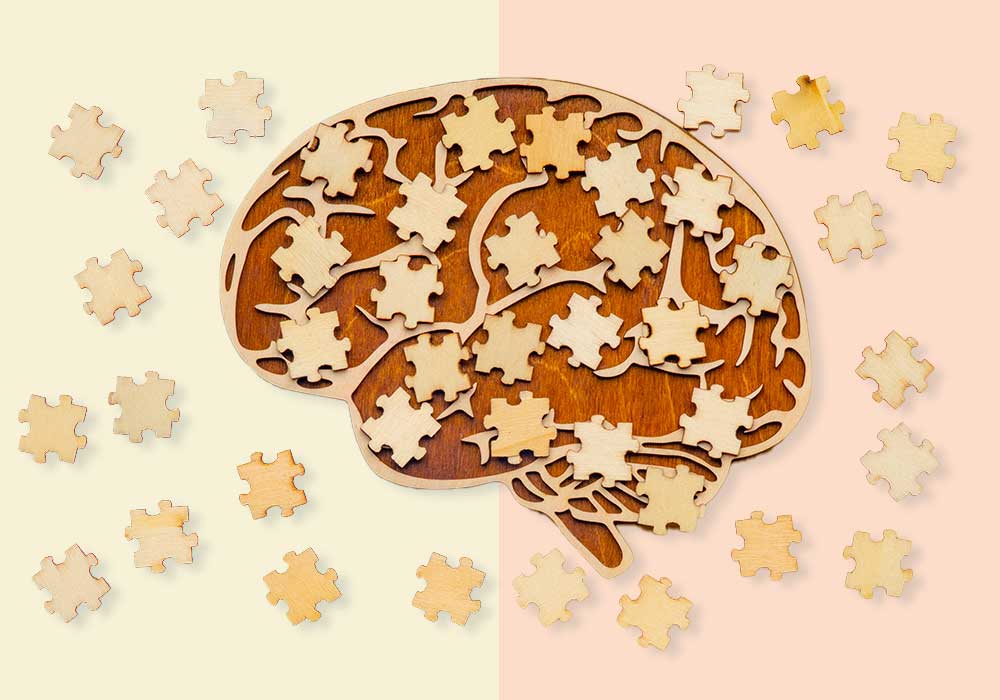“To generalise is always to err“, said the German philosopher Keyserling. And it is a mistake we tend to make, especially when we judge people on the basis of stereotypes. Fortunately, the view of diversity teaches us to look at society with different eyes, as we often find it difficult to see the world with a clarity free of prejudice, as is the case with neurodiversity.
You’ve probably seen The Big Bang Theory, The Good Doctor or Bones. Do you know what these shows have in common? All three star professionally successful and neurodiverse characters. Read on, today we’re opening another small door to the great spectrum of diversity.
What will I read about in this article?
- What is neurodiversity?
- The importance of neurodiversity in the workplace
- How to promote neurodivergence
Since when is thinking differently a problem?
Neurodiversity defends the idea that there is no “right” way to think, learn and behave. People interact with reality in many different ways without this being a deficiency or a problem.
“Neurodiversity advocates the idea that there is no ‘right’ way to think, learn and behave”
The term is attributed to Australian sociologist Judy Singer and is intended to increase the inclusion of people who are on the autism spectrum (ASD) or who have other neurological or developmental conditions, such as ADHD or learning disabilities.
The aim of this concept is clear: to avoid judging these people in terms of illness and disability and to make society understand that their brains simply work differently.
Relying on neurodiverse people, an opportunity for business growth
Diversity and inclusion have long been of great importance in the business world.
In the corporate sphere, diversity is about including professionals of different age, gender or sexual orientation, nationality, religion, ethnicity, culture, status, etc. in an organisation’s workforce. Neurodivergence is one of the most recent approaches to be taken into account.
In previous articles we’ve already discussed the benefits of having an inclusive organisational culture. But what about neurodiversity in particular?

Having neurodivergent people can provide companies with a competitive advantage that brings measurable benefits, both financially and in terms of organisational culture. Because neurodiverse people are wired differently from “neurotypical” people, they can bring new approaches to tackling problems or proposing solutions.
However, the neurodiverse population still has problems in finding a job. According to Harvard, unemployment is as high as 80 % and many of those who are employed are overqualified for their jobs.
“Unemployment is as high as 80% and many of those who are employed are overqualified for their jobs”
Just as everyone has, to some extent, different abilities, no two neurodiverse people are exactly alike. However, Autism at Work highlights the following advantages for companies that have neurodivergent profiles in their teams:
* 1. They think differently: they receive, process and interpret information differently and often solve problems in unconventional ways or consider approaches and possibilities that others might not.
* 2. They bring a unique perspective: Neurodiverse people often experience the world differently. Therefore, teams with such individuals are more likely to have a broader and deeper perspective that can translate into better designed products and services.
* 3. They are less likely to change jobs: this translates into a lower turnover rate and lower turnover costs. Provided the work environment is supportive and inclusive, a neurodivergent person is unlikely to look for other options because they’re comfortable in the routine and the daily.
* 4. They accept and understand diversity: by going through the differences they experience themselves, neurodiverse people often find it easier to accept and empathise with other human differences.
* 5. They can do any job: be it manual, organisational, creative or leadership-related. Neurodiversity does not limit people, it’s not a disability, but an opportunity for companies to have a diverse team focused on the best results.
How to promote neurodiversity
Stigma and an information deficit can cause difficulties for people with neurodivergence when it comes to inclusion. It’s important to promote an environment conducive to neurodiversity, and to recognise and highlight each person’s individual strengths and talents while offering support for their differences and needs.
How can companies promote neurodiversity?
* Ask the person directly about any adjustments they may need. As mentioned above, there are as many types of profiles as there are neurodivergent individuals and each will have different needs.

* Speak clearly and try to avoid irony or double meanings. Some people find it difficult to read between the lines and communication will be more effective if we say exactly what we mean.
* Put the neurodiverse person in contact with a colleague to whom he/she can ask questions and from whom he/she can get information or advice to make inclusion in the company quicker and easier.
* Allows them to personalise their workspace. Work environments are not always the most forgiving of sensory differences for these people. Sound, lighting, temperature, textures and smells can have a negative impact on their productivity.
* Flexibility in neurodiversity includes how, where and when they do their work. Many neurodiverse people are at their best when they are not restricted to traditional work environments where you have to stay in one place from 9 to 5.
* Never disclose or discuss the specific needs, differences or diagnoses of a neurodiverse employee in the workplace without their consent.
Reaching out is a step-by-step approach to building a diverse world where whoever you are, you can feel included, both personally and professionally.
Sources:


